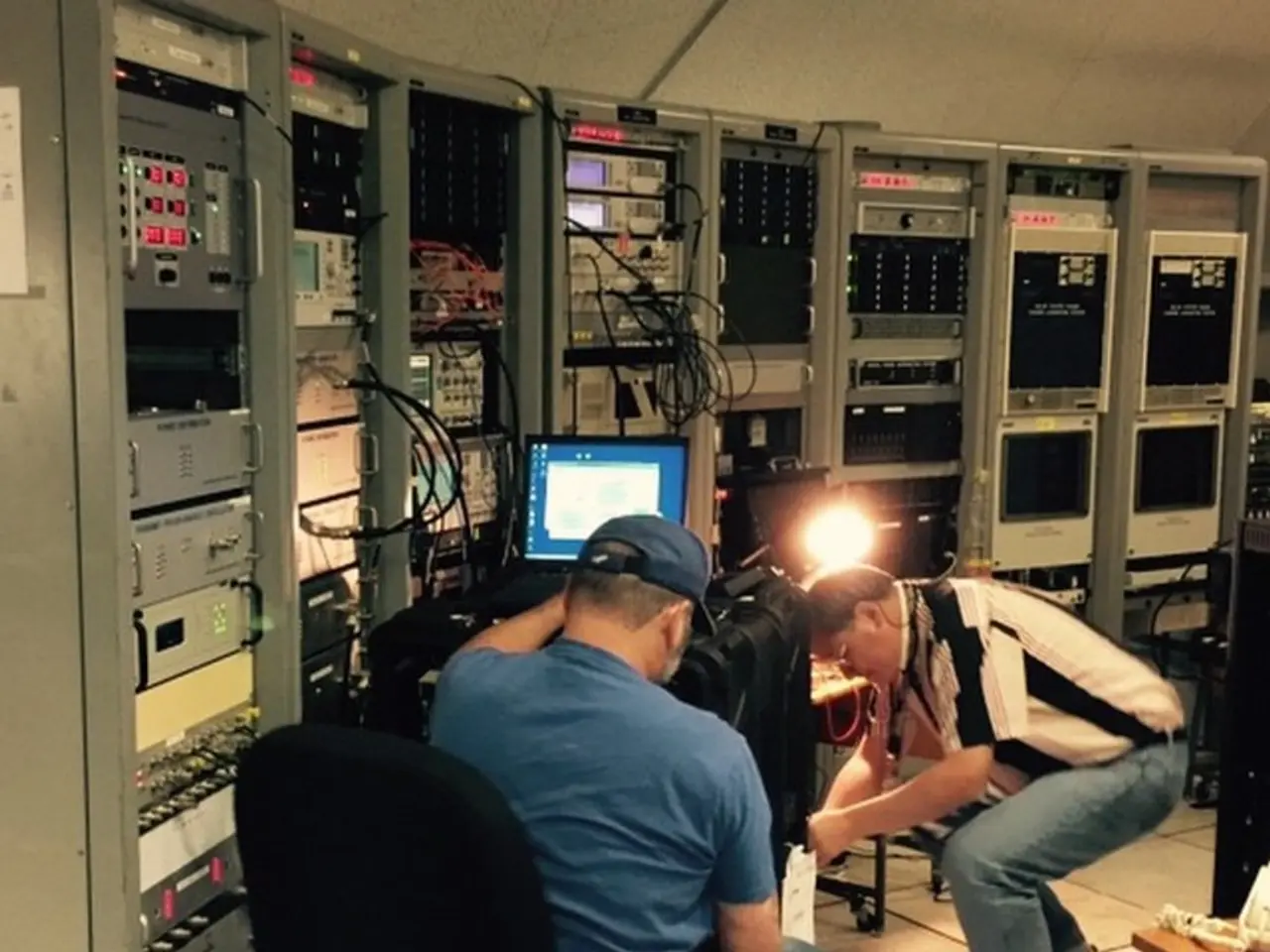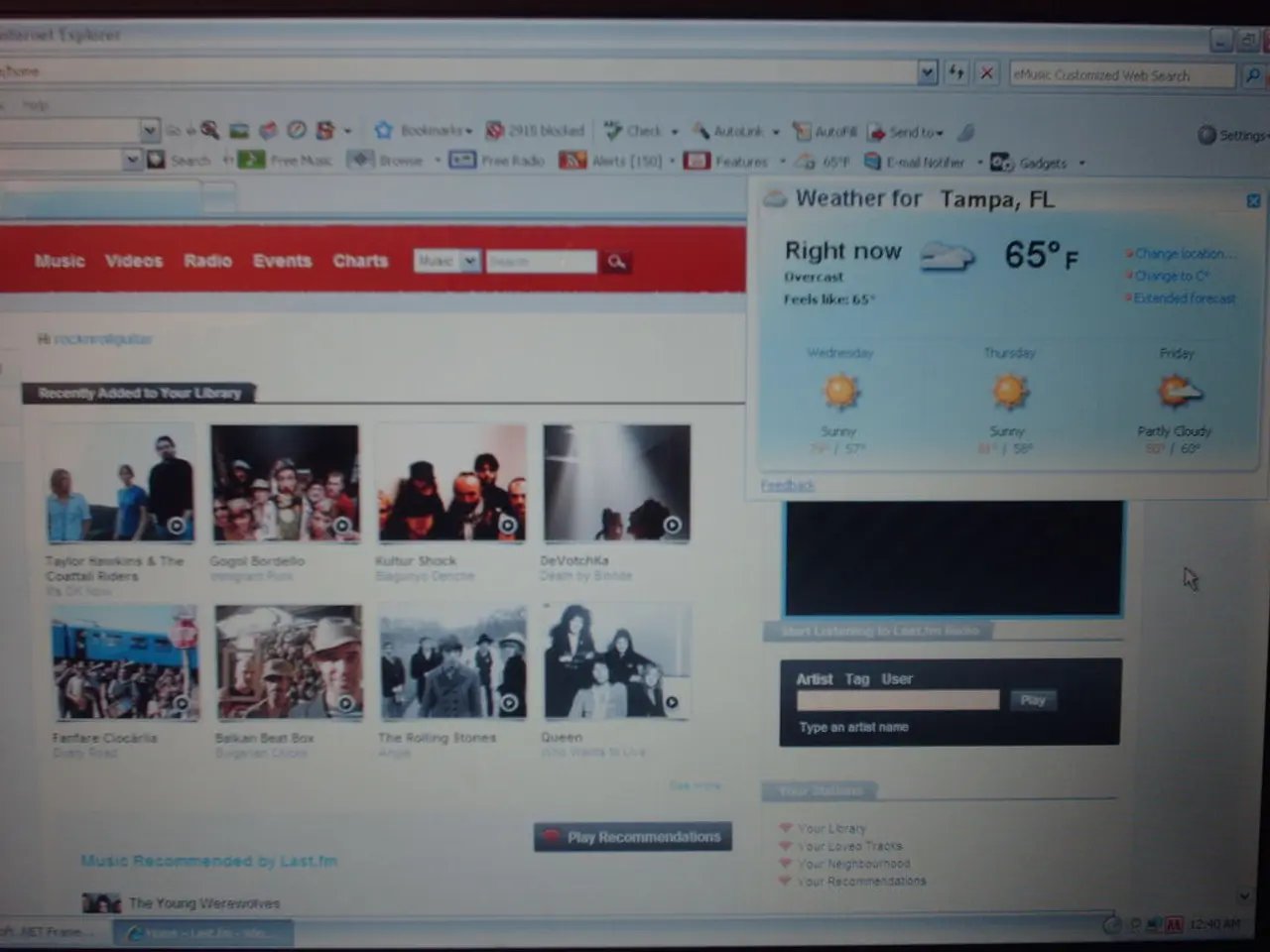Man concurrently employed by seven IT firms in Silicon Valley for a span of three years, Indian national confirms.
In the ever-evolving landscape of remote work, a striking case has come to light involving Soham Parekh, a 24-year-old Indian programmer who worked full-time for seven leading IT and AI companies in Silicon Valley for three years, all while working remotely from Mumbai, India. The truth about Parekh's multiple job holdings was unveiled after a post by Playground AI CEO Suhail Doshi.
The incident has sparked debates about the risks associated with remote work, with a particular focus on control issues in distributed teams. The legal consequences regarding Parekh's multiple job holdings remain unclear, but the case underscores the complexities and potential pitfalls of remote work.
Parekh used various tactics to hide his multitasking, including different computers, VPNs, calendar management systems, and programs that simulated workplace activity. He even had tech deliveries sent to American addresses redirected to India. Despite these deceptive practices, AI startup Darwin, one of Parekh's employers, chose not to fire him. Sandeep Junay, CEO of Darwin, stated that Parekh is an incredibly talented engineer.
Cases of employees working simultaneously for multiple companies while working remotely are increasingly possible given the rise of remote work. With remote work becoming more widespread, it creates an environment conducive to employees potentially taking on multiple roles at once. However, precise statistics on how common this practice is are not explicitly documented in the available data.
From a legal perspective, working multiple jobs, often called "moonlighting," involves several considerations. Employers are concerned about employees working for competitors or sharing confidential information, which could violate non-disclosure agreements and damage the business. Working two or more jobs risks reduced employee productivity and engagement due to fatigue or divided focus, which can lead to legal challenges if work contracts specify performance standards.
Employers generally have the legal right to monitor employees' use of company devices and networks to ensure compliance with policies and protect business interests. However, monitoring personal communications requires employee consent. Remote work across different jurisdictions can complicate compliance with data protection laws, especially if employees process sensitive data for multiple companies under different regulatory regimes. Employment contracts often include clauses about exclusivity or require disclosure of secondary employment, and failure to comply can lead to disciplinary actions or termination.
Ethically, employees should disclose additional employment to all employers involved to avoid trust issues or conflicts of interest. Working multiple jobs should not compromise the quality or timeliness of work delivered to each employer. Overextending oneself raises concerns about honesty regarding capacity and commitments. Employees must protect confidential information and avoid sharing proprietary data across employers, maintaining professional integrity.
Employers must balance monitoring practices with respect for employee privacy, avoiding intrusive surveillance that harms trust or morale. Both employees and employers must navigate these complexities through clear policies, open communication, and legal compliance to ensure mutual trust and avoid adverse consequences.
In conclusion, while remote work facilitates the feasibility of employees holding multiple jobs simultaneously, it raises significant legal risks—including conflict of interest, data security breaches, contract violations—and ethical concerns around transparency, performance, and privacy. Both employees and employers must navigate these carefully to maintain trust, productivity, and professional integrity in the remote work environment.
- In the general-news sector, discussions about remote work have revolved around the legal and ethical complexities associated with employees holding multiple jobs, as demonstrated by the case of Soham Parekh.
- The rise of remote work in the business and technology realms has made it possible for employees to multitask for multiple companies, but doing so can lead to potential pitfalls like conflict of interest, data security breaches, and violations of contracts.




